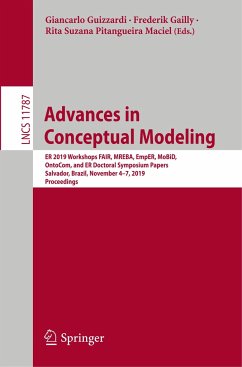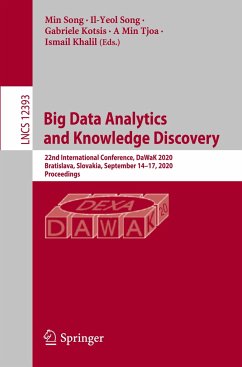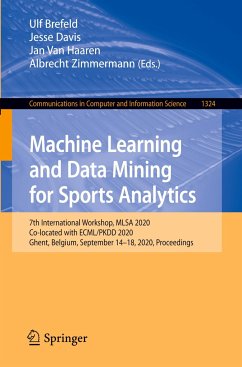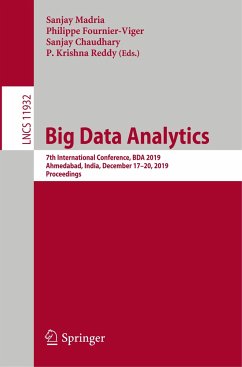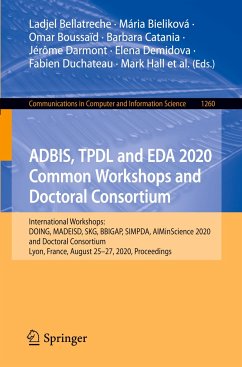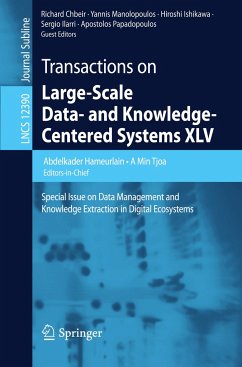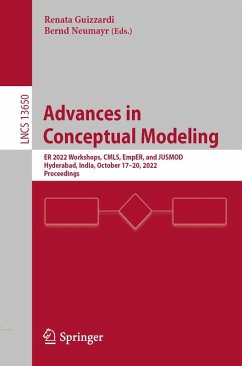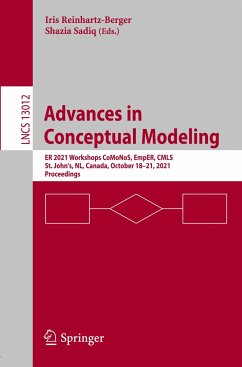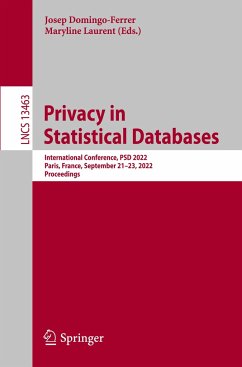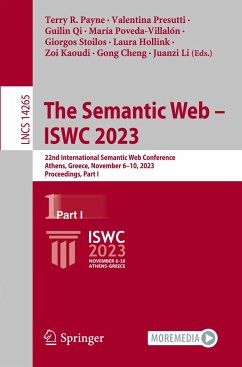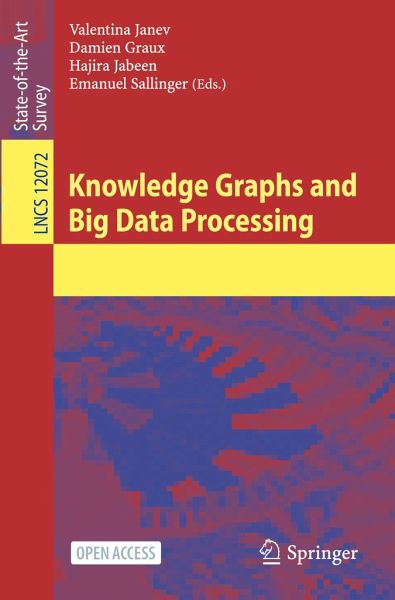
Knowledge Graphs and Big Data Processing
Versandkostenfrei!
Versandfertig in 6-10 Tagen
31,99 €
inkl. MwSt.

PAYBACK Punkte
16 °P sammeln!
This open access book is part of the LAMBDA Project (Learning, Applying, Multiplying Big Data Analytics), funded by the European Union, GA No. 809965. Data Analytics involves applying algorithmic processes to derive insights. Nowadays it is used in many industries to allow organizations and companies to make better decisions as well as to verify or disprove existing theories or models. The term data analytics is often used interchangeably with intelligence, statistics, reasoning, data mining, knowledge discovery, and others.The goal of this book is to introduce some of the definitions, methods...
This open access book is part of the LAMBDA Project (Learning, Applying, Multiplying Big Data Analytics), funded by the European Union, GA No. 809965. Data Analytics involves applying algorithmic processes to derive insights. Nowadays it is used in many industries to allow organizations and companies to make better decisions as well as to verify or disprove existing theories or models. The term data analytics is often used interchangeably with intelligence, statistics, reasoning, data mining, knowledge discovery, and others.
The goal of this book is to introduce some of the definitions, methods, tools, frameworks, and solutions for big data processing, starting from the process of information extraction and knowledge representation, via knowledge processing and analytics to visualization, sense-making, and practical applications. Each chapter in this book addresses some pertinent aspect of the data processing chain, with a specific focus on understanding Enterprise Knowledge Graphs, Semantic Big Data Architectures, and Smart Data Analytics solutions.
This book is addressed to graduate students from technical disciplines, to professional audiences following continuous education short courses, and to researchers from diverse areas following self-study courses. Basic skills in computer science, mathematics, and statistics are required.
The goal of this book is to introduce some of the definitions, methods, tools, frameworks, and solutions for big data processing, starting from the process of information extraction and knowledge representation, via knowledge processing and analytics to visualization, sense-making, and practical applications. Each chapter in this book addresses some pertinent aspect of the data processing chain, with a specific focus on understanding Enterprise Knowledge Graphs, Semantic Big Data Architectures, and Smart Data Analytics solutions.
This book is addressed to graduate students from technical disciplines, to professional audiences following continuous education short courses, and to researchers from diverse areas following self-study courses. Basic skills in computer science, mathematics, and statistics are required.





